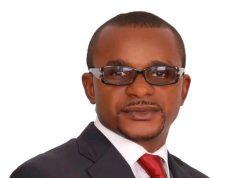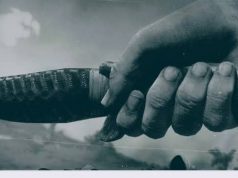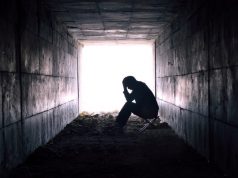I met and interviewed Mr Robert Mugabe in 1981. He was already the Prime Minister of the then newly independent Zimbabwe against my hopes and expectation. The man I had hoped would be the Prime Minister was Mr Joshua Nkomo whom I had interviewed earlier in a guerrilla camp somewhere on the outskirts of Zambia.

I liked Mr Nkomo instantly. He was voluble and engaging as we sparred and fenced for almost two hours. I guess the affectionate feeling was mutual because he told me at the end of the interview that it was one of the livelier ones he had ever had. I was not alone in thinking Nkomo would be Prime Minister. Many people round the world thought so. Mugabe was the taciturn one while Nkomo was the extrovert.
More importantly, Mugabe was in prison while Nkomo was visible. But politics is about numbers and Mugabe is from the larger Mashonaland while Nkomo was from the smaller Matabeleland. Whatever the reason for his choice, the Mugabe I met was a Prime Minister and the setting reflected that. He was reserved but with a quick wit. He sounded intelligent and was certainly impressive. Dressed in a dark suit, he seemed more ‘British’ than Nkomo his arch rival. I felt he would easily blend and be accepted by the British despite his socialist leaning.
I became an anti-apartheid sympathiser by default. In 1977, Nigeria hosted a ‘World Action against Apartheid’ conference in Lagos. I was asked by Punch, the newspaper I worked for then to cover the event. It was there that I got enlightened and was able to grasp the full extent of the anti-apartheid struggles.
I was able to understand the relative helplessness of the neighbouring African countries, the importance of patience and the effect of the war of attrition that was being waged internally and externally against the white supremacists and their allies. As a young man, I was appalled by the extent of man’s inhumanity to man and felt the world needed to go beyond mere words. By the end of the second day of the conference, I had had enough of the rhetoric and was filled with indignation. That was when older, wiser and more experienced heads calmed me down.
Nigeria’s ambassador to the UN, Ambassador Leslie Harriman explained to me as if to a child, that the mere fact that the whole world was standing still to discuss and condemn the apartheid regime was in itself a sort of victory.
Joe Garba, the country’s External Affairs Commissioner, explained further. Over lunch, he highlighted the economic dependence of the so called front line States on South Africa and how a frontal attack would cripple those countries. He could not, he said, even reach any of them on the phone without going through South Africa. It was a mortified, but more enlightened and more determined me that left the conference.
Within two years, I had met and interviewed Oliver Tambo, the President of ANC which was the main opposition group that was fighting apartheid in South Africa. I had also met a few of the foot soldiers in Mozambique and Zambia. The eventual collapse of apartheid caused jubilation in several parts of the world especially in Africa. I looked forward to meeting and interviewing Mandela and Mugabe the newly anointed helmsmen of the newly independent countries. The former was not to be but the latter happened.
Mugabe the Marxist became Mugabe the Statesman. He quickly courted the West while not ignoring the East. The economy of the then Rhodesia was one of the best in the region at the time. Mugabe did his best to maintain that in the early 80s. He concentrated on education while trying to integrate the war veterans into the system.
Then things started to go awry in the 90s. Some people say the West spurned him when he redistributed the fertile lands owned by the whites to the war veterans. Others say it was the other way round; that the West spurned him because of his repressive attitude towards opposition and he in turn distributed white lands to his cronies in retaliation. Either way, it is safe to say politics got in the way of the economy. And as time went on, self-survival got in the way of both. The country became the casualty.
The quest for self-survival had been the driving force behind many of Mugabe’s actions and his refusal to share power had characterised his concept of statehood. It was what led him to politically destroy Joshua Nkomo, his earliest rival and to ruthlessly destroy his base by virtually annihilating the Matabele people. Mugabe looked at the works of his hands, saw that it was good, and proceeded to use it as a template against other political rivals. Only he became more ruthless and messianic as time went on.
He labelled critics as traitors and sell-out and dealt with them accordingly. The last serious opposition was Morgan Tswangirai in 2008. Many of his supporters suffered for his impunity. He almost did not live to regret daring to contest. By this time the economy had plummeted and inflation had spiralled out of control. Sanctions from the West were biting and the East had become lukewarm. China became his main beacon, his prop.
It was self-survival that made him cling to power well after his sell-by-date. It was self-survival that made him lean towards his wife as a possible successor. By this time of course, the line between the State and his person had become blurred. His sense of entitlement had become heightened. He also felt invisible and was increasingly contemptuous of opposition. All these showed in his often rambling speeches. In the end, he virtually lost everything—the people, the party, the army and much of his legacy.
Is Mugabe a hero or a villain? In time, the dispassionate verdict of history will determine that. But I am too keenly aware of his role in the anti-apartheid struggle to call him a villain. I also spent about an hour with him within his first year in office and came away with the impression that he meant well for his country. But he is a mere man after all, and the two deadliest tempters of men are women and power. He fell to both. And power, when it is absolute, destroys absolutely.
Is this the end of an era? Too soon to tell. Suffice it is to say that Mugabe did not act alone. Many of his co-actors are still very much on the scene.
Prayer for all: may we start well and end well.




